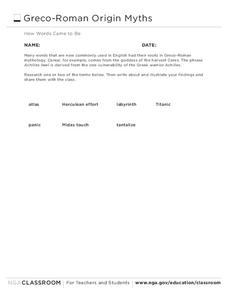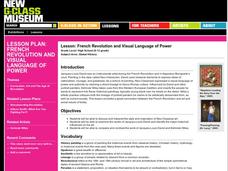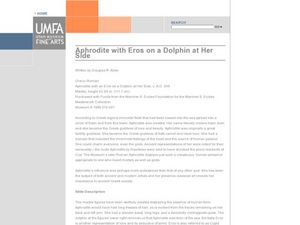Curated OER
Greco-Roman Origin Myths
Learners explore myths that explain the world, recognize some characters of Greco-Roman mythology and their symbols, and Make personal connections to the theme by writing and drawing a myth of their own.
Curated OER
Greco-Roman Origin Myths
In this Greco-Roman origin myths worksheet, students read a list of 7 commonly used terms. Students research the origin of one or two of these terms and write about and illustrate their findings. Example: atlas, Herculean effort, tantalize.
New Class Museum
Lesson: French Revolution and Visual Language of Power
Take a look at the French Revolution and neo-classic art, then compare it to current social issues and contemporary art. Kids analyze several pieces painted by Jacques-Louis David in regard to style and subject then compare them to...
Curated OER
In Old Pompeii
Students investigate the history of Pompeii and its destruction. They take a virtual field trip to the ruins of Pompeii, create a travel brochure to attract tourists to the site, and write an account of their trip.
Curated OER
Chapter 12 Writing: the ABCs of Language
Providing a thorough presentation on the art of written language (and not just English), this slideshow will open your students' eyes to the sociological and linguistic issues surrounding writing systems, both modern and historical. The...
Curated OER
Aphrodite with Eros on a Dolphin at Her Side
Students analyze Greek sculpture. In this Greek sculpture lesson, students review the roles and responsibilities of the Gods and Goddesses in the Greek pantheon. Students compare the way Greek Gods are portrayed and sculpt the Goddess...
Curated OER
Personalities of the Renaissance
Have the class interpret historical evidence presented in primary and secondary resources. They examine sources regarding architecture, art, exploration, government, literature, religion, and technology of the era. Then they use their...








